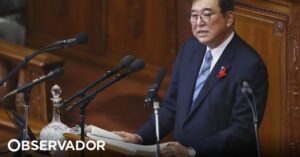
The tripartite committee made up of representatives from unions, employers and the public has launched the process to determine next year’s minimum wage in South Korea, as the nation focuses on whether it will exceed 10,000 won for the first time (7 $.35) per hour.
The Minimum Wage Committee, composed of a total of 27 members (nine from each of the three parties), convened its inaugural meeting this year, in the central city of Sejong, to review the minimum hourly wage by 2025.
The committee elected Lee In-je, an economics professor at Incheon National University, as chairman to oversee the subsequent determination process, before officially receiving the Ministry of Employment and Labor’s request to revise next year’s minimum wage. .
By law, the committee must complete its review within 90 days of receiving such a request, which this year falls around the end of June. However, the annual review process often extends beyond the deadline.
South Korea and OECD to begin digital society initiative
The main focus of public attention falls on whether the minimum hourly wage will surpass the 10,000 won threshold.
He minimum wage for this year was set at 9,860 won ($7.23), increasing 2.5 percent year-on-year, representing the second smallest increase on record.
An increase of at least 1.42 percent, or 140 won, would put next year’s minimum wage above the 10,000 won mark.
The committee is expected to confront demands for a significant increase from labor, citing rising costs of living, and employers to advocate for a freeze to ease cost burdens for small business owners.
Another major bone of contention is whether the minimum wage should be set separately for different sectors to address the unique needs of each sector.
The Korean Business Federation (KEF), which represents the business community, has stressed in its recent report the need to differentiate the minimum wage for various sectors, citing different management environments for them.
The labor community vehemently resists, arguing that it would go against the purpose of a minimum wage and would amount to stigmatizing certain business sectors.
The Bank of Korea (BOK) proposed adopting a lower than universal minimum wage for caregivers to address labor shortages in the sector.
At a press conference before the committee session, Jeon Ji-hyun, president of a caregiver union, expressed the industry’s strong objection to the idea, arguing that it “would amount to discrimination through lower pay.” and the denigration of the value of the profession.
Source: https://reporteasia.com/economia/2024/05/22/corea-del-sur-busca-determinar-el-salario-minimo-de-2025/

